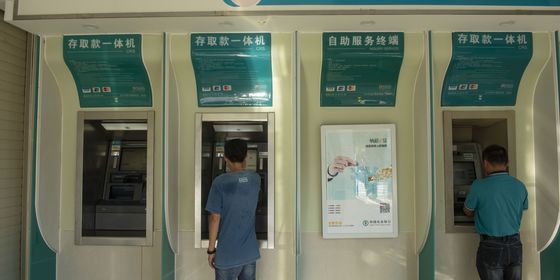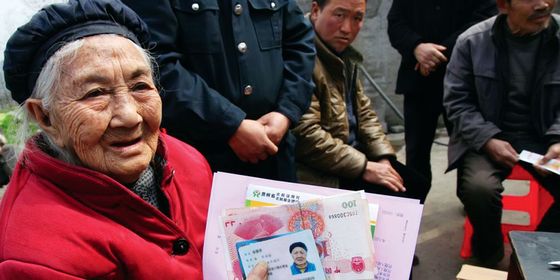Amid crackdown on outflows, cryptocurrency has been relatively untouched—thus far
It’s getting much harder to get money out of China. Lawyers are reporting dramatic increases in the number of inquiries about how to do this, with some enterprising scammers even trying to open up legal cases in which they lose and send a large quantity of money to another company, which in reality is either the same company or a partner located abroad.
As it stands, Chinese residents have a maximum capped amount of money they can transfer abroad – $50,000 USD per year. This is also the limit on how much USD one person can buy with RMB per year.
Thus far, one way to circumvent these restrictions has been to use multiple people with multiple IDs to transfer cash, but this is certainly a practice that the authorities are aware of and will likely attempt to deal with as best they can.
New regulations coming into effect later this year will mean that anyone who wants to buy USD with RMB will need to file an application. Bank staff are already telling customers to be wary of trying this too frequently, as it may trigger additional oversight or investigations.
China-based foreigners paid in yuan have an even more difficult time transferring cash out of the country, with limits as low as $500 USD per single transfer, but there are certain exceptions, particularly when foreigners have documents regarding the amount of tax they have paid.
Companies are also feeling the hit, with even stricter restrictions on investments and cash transfers.
But, curiously, one form of outflow has been left relatively untouched by regulators: bitcoin.
Depending who you ask, the cryptocurrency is likely to be the next target of the crackdown on outflows, or will receive some positive regulation. There haven’t been any regulations yet, but prices have been steadily rising and expectations of some kind of correction are running high. The People’s Bank of China recently met with representatives of the Chinese bitcoin exchange, though it is still unclear what was discussed at the meeting.
Meanwhile, Bitcoin analysts bitcoinity point out. that there are strong correlations between the decline in the RMB and a price surge in the bitcoin. An article in the Financial Times states:
“The apparent correlation between a depreciating renminbi and bitcoin’s price surge in recent months has prompted suspicion that the virtual asset is contributing to outflows. Bitcoin’s Chinese price rose 145 per cent in 2016, as the renminbi suffered its worst year on record, weakening 6.5 per cent. Renminbi transactions accounted for 98 per cent of global bitcoin trading volume over the past six months, according to data from bitcoinity.org.”
The article does also point out however, that bitcoin might not necessary be ideal for large scale financial transfers as it requires bank cards and thus people must provide identity information, which authorities can track.
TWOC spoke to one American who recently moved away from China and used bitcoin to transfer his savings overseas. In describing the process, he said that he needed to take a picture of himself with his passport to sign up to get a bitcoin account, then purchased bitcoin from the Chinese bitcoin exchange.
“You buy it on the Chinese bitcoin exchange, send it to the overseas exchange, and sell it as foreign currency” he said. “Photo ID is required and you basically need a bank account in each country.”
“The transaction fees are usually about one to two percent. The speed [of transfer] depends on the time it takes to write transactions to the blockchain ledger, but you can complete a transfer in as little as maybe 20 minutes,” he added.
The current price of bitcoin is hovering around the $900 USD mark for one coin, a significant increase over recent years. In May of 2016, it was half that value. But transaction increments can be in fractions of a bitcoin.
China has been a big player in bitcoin production and is responsible for much of the demand as well. The Washington Post has covered the bizarre world of giant bitcoin “mines” on the (literal) slopes of Tibet, while the BBC has spoken to some of the largest players on the scene.
China’s prominent role in the bitcoin market has prompted negative commentary overseas, not just in regard to the dominance of Chinese players and the possibility of government action in China having a severe effect on international markets, but also the fact that China’s slow internet speeds are hampering bitcoin production.
Prospective Chinese bitcoin buyers though, are more likely to be concerned with local scams. Beijing Business Today (link in Chinese) recently reported on one such fly-by-night operation. The Bitcoin Asia Lightning Trade Center purported to sell bitcoin but basically swallowed up the cash from buyers and investors and disappeared with a hundred million RMB.












